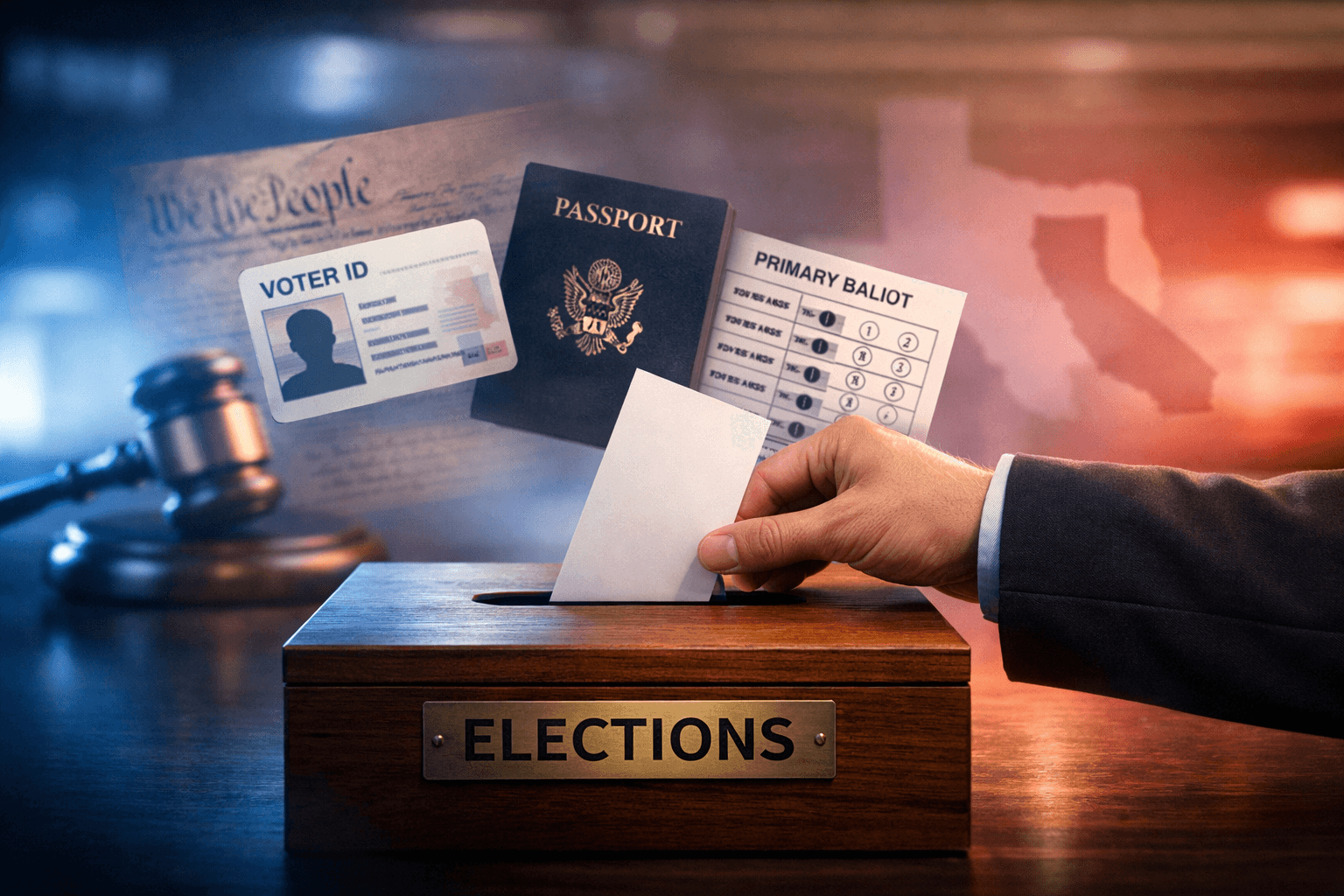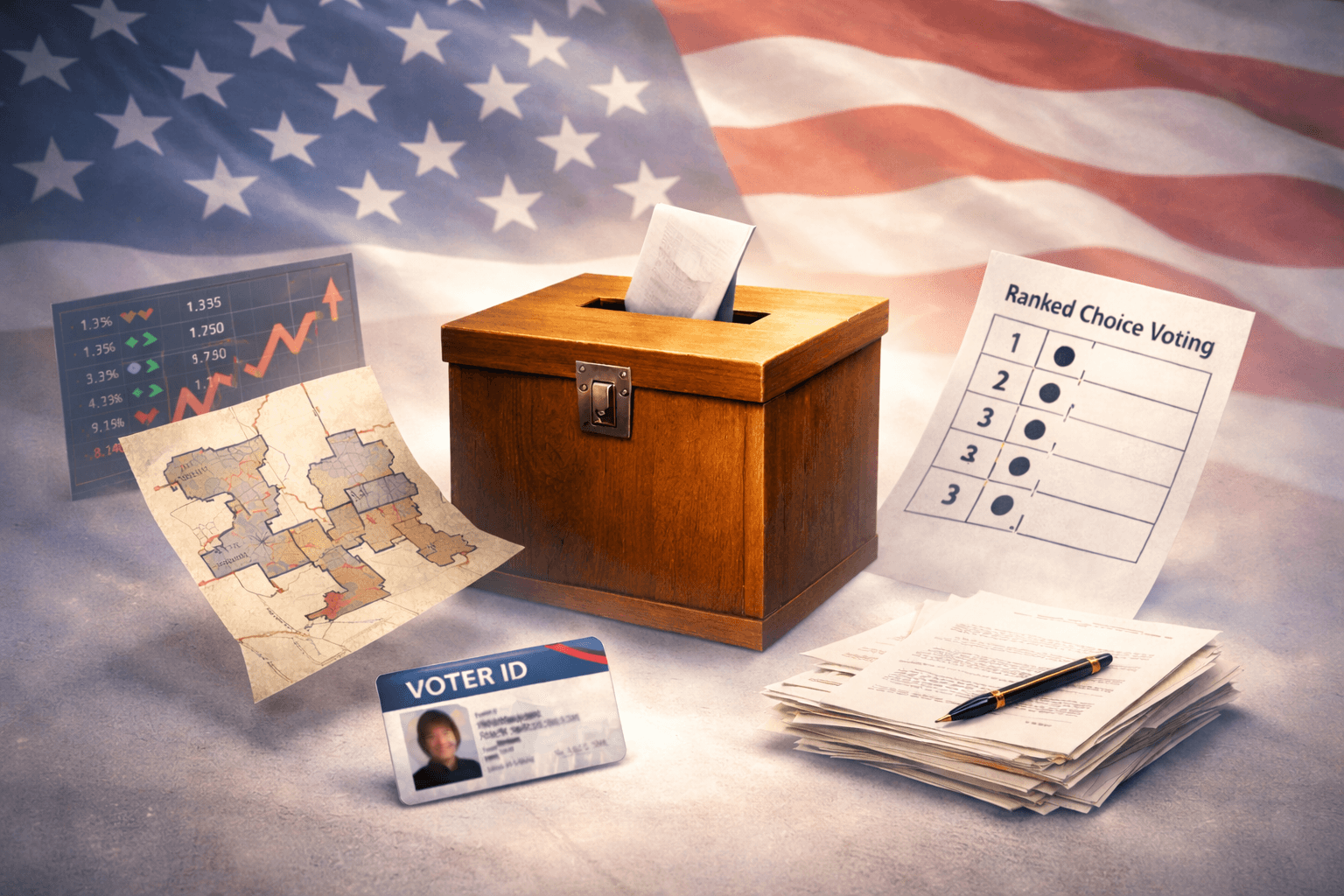South Dakota Open Primaries Submits 47K Signatures to Get Nonpartisan Primary Reform on the Ballot

Photo Credit: Samir Luther / Flickr
One week after the Idahoans for Open Primaries coalition submitted roughly 30,000 more signatures than they needed to get a nonpartisan top-four primary system on the ballot, South Dakota Open Primaries met the required number of signatures in their own state to put a top-two system before voters.
The campaign filed 47,000 signatures with South Dakota Secretary of State Monae Johnson Monday, nearly 12,000 more than the 35,027 signatures needed to qualify for the November ballot. Johnson's office has until August 13 to validate the amendment.
South Dakota has a semi-closed primary system. Voters registered with a political party must vote in their respective party's primary. The parties get to decide whether or not independent voters can have an equal say in elections.
Of the 602,000 registered voters in the state, 150,000 are registered with no party affiliation. One of the biggest changes a nonpartisan primary system would make is it would give these voters -- a quarter of the electorate -- an equal vote.
"Our top-two primaries constitutional proposal eliminates separate ballots for each party. All registered South Dakota voters would get the same ballot," said Joe Kirby of South Dakota Open Primaries. Kirby has worked for years to reform primaries in the state.
"It would cover the three congressional offices, the governor, the legislature and county offices. It would be a South Dakota primary, not a Republican or Democrat primary."
Similar primary systems are in place in California and Washington. Alaska also has a nonpartisan system, but the top-four candidates advance from the primaries instead of two.
The current system in South Dakota gives party bosses the most control over electoral outcomes. Closed primaries are designed to separate voters into two camps where those who control the parties control who advances to November and which voters matter.
And in a state like South Dakota, this gives Republican bosses -- in particular -- a lot of power.
A state doesn't get more red than South Dakota. Only 7 seats in the state's 70-seat House of Representatives are held by Democrats -- 4 in the 35-seat Senate. Both US senators are Republican, as is its single member of the US House of Representatives.
The state is the congressional district, which has a R+16 score in the Cook Partisan Voting Index.
In most elections in South Dakota, it is not a question of will a Republican win. It is a question of which Republican will win, which turns the GOP primaries into a general election in which voters outside the party have no say.
This is why GOP leaders oppose nonpartisan primaries. South Dakota Republican Party Chair and state Sen. John Wiik was quoted by AP declaring that he sees "no good coming out of it for the Republican Party."
“I want Republicans to be able to choose the Republican candidate, and Democrats to choose the Democrat candidate,” Wiik said. “If you want to be an independent, then you’re independent of the decisions that affect your lives.”
Wiik is another party leader who believes that if a voter chooses not to affiliate with the Republican or Democratic Parties then they forfeit their right to vote -- which speaks to how much control and entitlement the parties have in US elections.
It is important to note that nothing would stop the Republican Party or the Democratic Party from selecting their own nominees under a nonpartisan primary system. They can nominate candidates for the primary and endorse whoever they want.
But, the primary would not serve the private interest of selecting these nominees on the taxpayer's dime. The primary would serve the public interest of narrowing the field of candidates chosen by all voters.
Kirby has previously stated that the Republican Party has nothing to lose under nonpartisan primaries. He says a conservative party will always do well in South Dakota because it is a "conservative-thinking state."
"I just don't think we should let parties dictate how elections are run," he said, noting that these are public elections.
South Dakota Open Primaries is a group that includes many Republicans and conservative-minded independents who don't think the current primary system is fair. They are joined by Democrats and independents who think the same.
If Top Two qualifies for the ballot, it may face a tight race, especially as party leaders do everything they can to convince voters to oppose it. A January poll showed that about half of state voters support the amendment -- including 43% of Republican respondents.
 Shawn Griffiths
Shawn Griffiths






